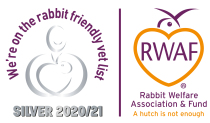PET TRAVEL SCHEME
*****************************************************************************************
PLEASE NOTE; AFTER 11PM ON DECEMBER 31st 2020 BREXIT WILL HAVE HAPPENED, WE WILL NO LONGER BE IN THE EU AND SO ANY UK ISSUED EU PET PASSPORTS WILL NO LONGER BE VALID.
*****************************************************************************************
From the begining of 2021 you will still be able to take your pet abroad. The requirement for your pet to be microchipped and have an in-date rabies vaccine a minimum of 21 days before traveling remain. We have part 2 listing so post vaccine blood testing does not need to be done. These requirements will also apply to travel to both Northern Ireland and the Republic of Ireland.
Instead of a UK issued pet passport you will need an Animal Health Certificate Export Form which we can supply. If you are making an appointment for this please make this clear at reception as they can only be issued by an Official Vet - we have more than one but we will need one to be working when you come in. We will give you a form to fill in before the AHC is issued to make life easier and make sure we get accurate information about your pet and where you are travelling to. You may have to return in 24-48h to collect your AHC as it will be at least 9 pages long & we have to keep copies of everything - and thats a lot of photocopying to get done in the middle of a packed evening surgery!
The paperwork neeeds to be done within 10 days of travel and is valid for entry into the EU (the forms are bilingual - we need to know which country you are arrriving in to get the correct forms & you can only travel on approved routes). They are then valid for onward travel within the EU & for return into the UK within 4 months. Repeat trips mean repeat forms.
Along with the form you will need to bring proof of your pets microchipping & rabies vaccination which will be present in your pets passport if you already have one & for new travellers will have to be recorded in the standard vaccination card. These documents have to be photocopied & attached to the Animal Health Certificate.
It would be very advisable to have an A4 folder to keep all these sheets of paper in - it is basically the same information that was present in the passport in a much less convenient & clunky form.
As before the tapeworm treatment before returing to the UK must be given between 24-120h before re importation & recorded on the AHC unless you are retuning from Ireland, Northern Ireland, Malta, Norway & Finland who are free of Echinococcus. Travel to any of these countries means that tapeworm treatment has to be given 24-120h prior to travel.
Further information can be found www.gov.uk/guidance/pet-travel-to-europe-from-1-january-2021
My understanding is that it may be more complicated to issue an AHC for a pet that has been imported into the UK from outside the EU (eg USA)
EU issued pet passports are still valid documents for EU citizens to be able to bring & take their pets from the UK to the EU & back again but I would advise keeping upto date on the governments website in case the situation changes.We canNOT certify a rabies vaccination in an EU issued pet passport. At the moment I cannot see the current changes having any effect on dodgy puppy imports.
Travel to and from non EU countries can be considerably more complex and can involve a lot of documentation and blood tests (Australia and New Zealand in particular). It is your responsibility to check with Authorities in the destination country as to what the requirements are.
In addition there may be other local hazards depending on where you are travelling e.g pine processionary moth caterpillar in Spain which can be very harmful to dogs.
AVOIDING EXOTIC DISEASES
There are many diseases present in Europe that we do not have in the UK that you do not want your pet to acquire – they can be difficult to diagnose and treat and the drugs needed to treat them may not be readily available in the UK. If your pet is ill and has ever been abroad please let the vet know as they may need to consider diseases we rarely see. For a short holiday always consider the risks of both exotic diseases (and heat stroke!) and practicalities before taking your pet abroad. The further south and east in Europe the greater the risk of most of these diseases.
These disease include Rabies, Leishmania (also affects people), Babesia, Erlichia, Hepatozoanosis, and Heartworm. Many of these diseases are transmitted by insect (tick, mosquito and sandfly) bites. Although tick treatment prior to re entry to the UK is no longer legally required tick treatment during your pets trip and on reimportation is advisable to stop your pet becoming infected and to avoid infected ticks (and these diseases) becoming established in the UK.
Preventative measures mean avoiding ticks, mosquitoes and sandflies that transmit these diseases and should be started 2 weeks prior to leaving the country. We caqn supplytablets that give flea and tick control for 3 months and so is very useful in travelling dogs, Our standard worming tablet and some monthly spot one should prevent heartworm, and a Scalibor collar will reduce the chance of sand fly and mosquito bites. The use of our routine worming tablet monthly also protects against lungworm and tapeworms. As the tapeworm Echinococcus is something that can affect people and something we want to avoid becoming established in the UK. Animals should be checked regularly for ticks and any found removed. Take a tick remover with you – these make tick removal easy to do properly. Walking in wooded areas at dawn and dusk should be avoided to avoid insect bites. All these products are available at the practice.
A new vaccine against leishmaniais has become available.
It involves one injection and annual boosters. Dogs must be at least 6 months of age & the vaccine takes 4 weeks to be effective. It is considerably easier & less expensive than the previous leishmania vaccine & is very much recommended for dogs visiting southern Europe. The vaccine is not 100% effective (@90% protection) so avoiding sandfly bites is still recommended. In endemic areas the vaccine is recommended by the World Health Organisation as infected dogs act as a resevoir of infection for people (please note; you cannot catch leishmania from contact with an infected dog - only from a bite from a sandfly that has fed from an infected dog).






